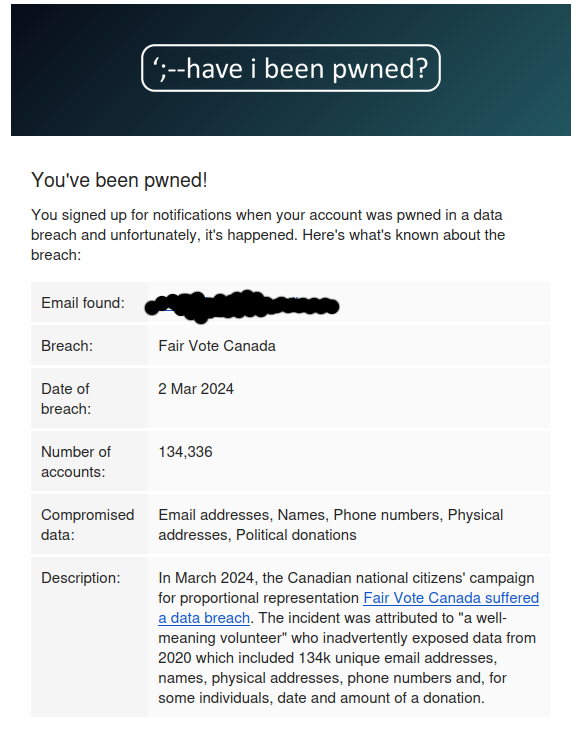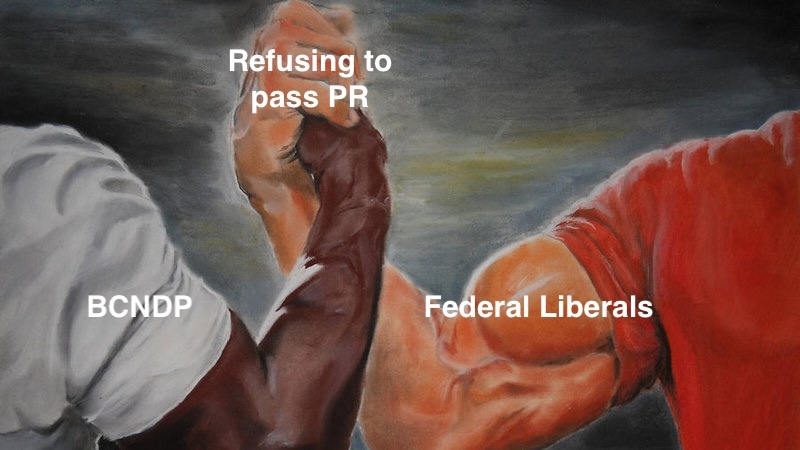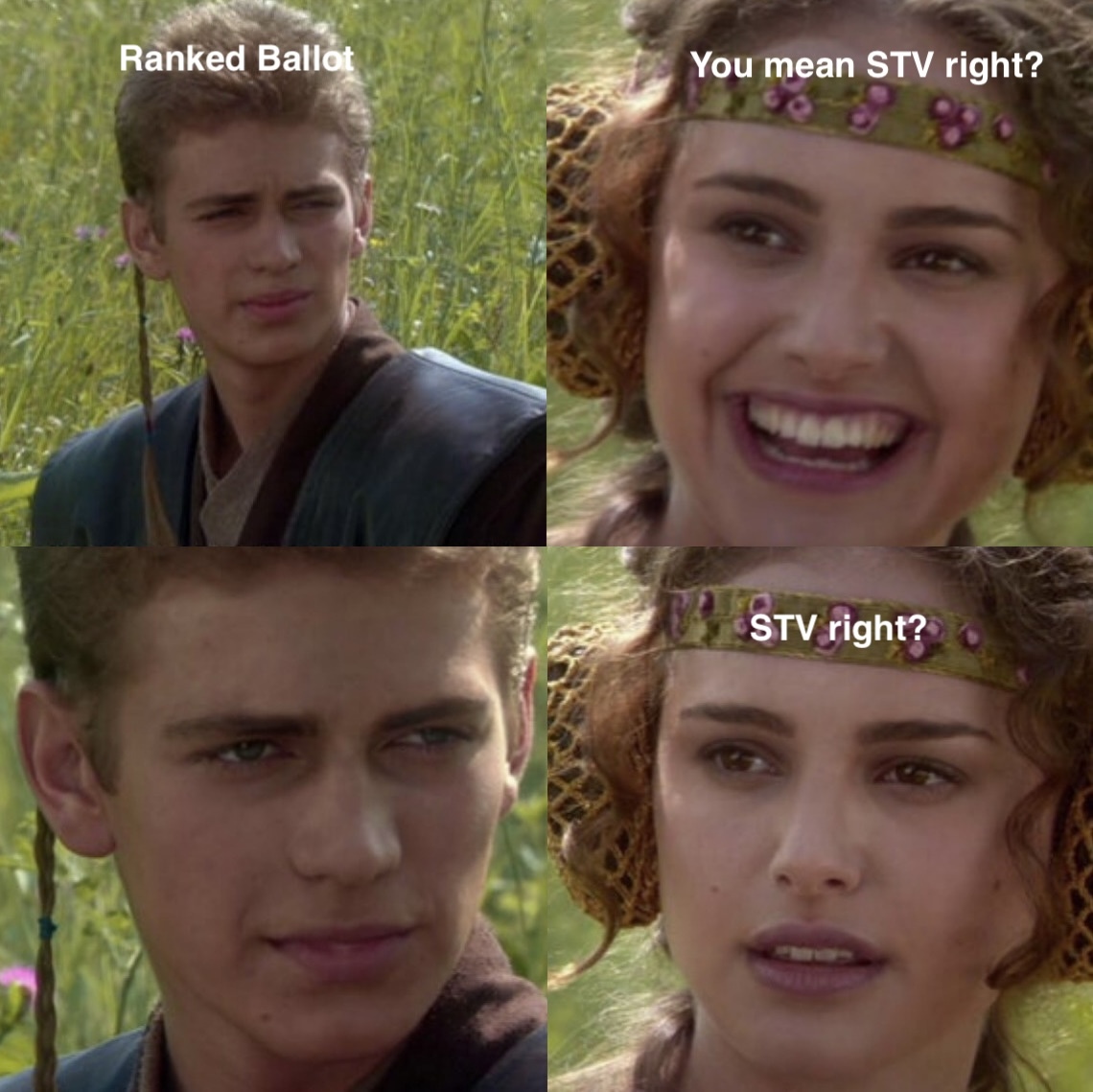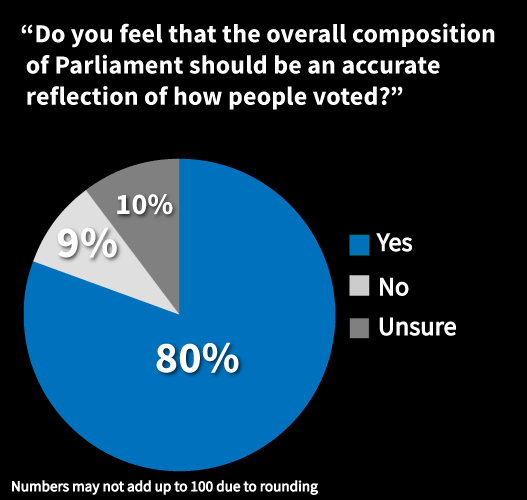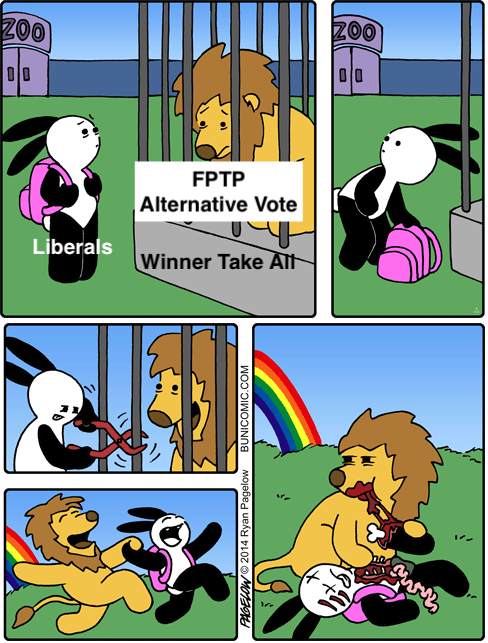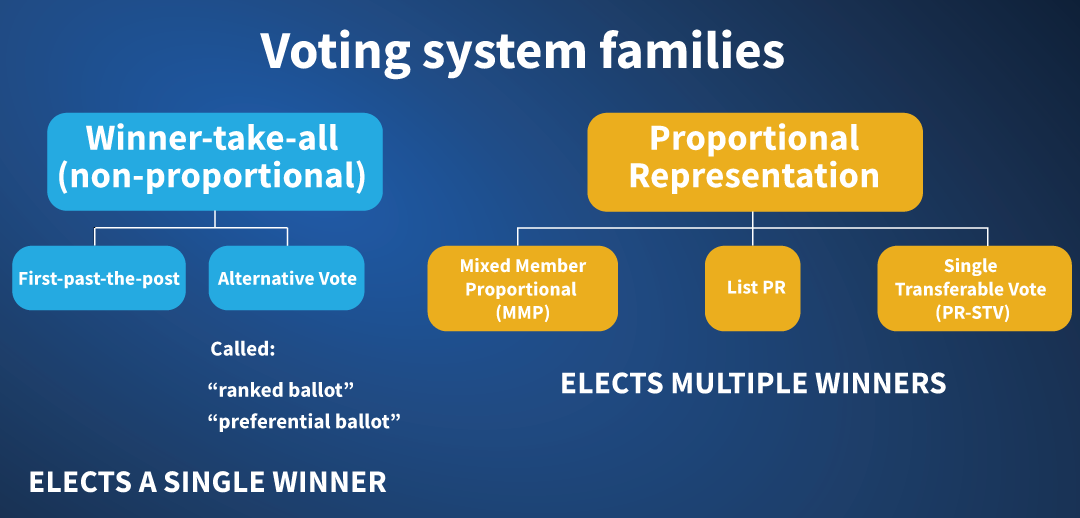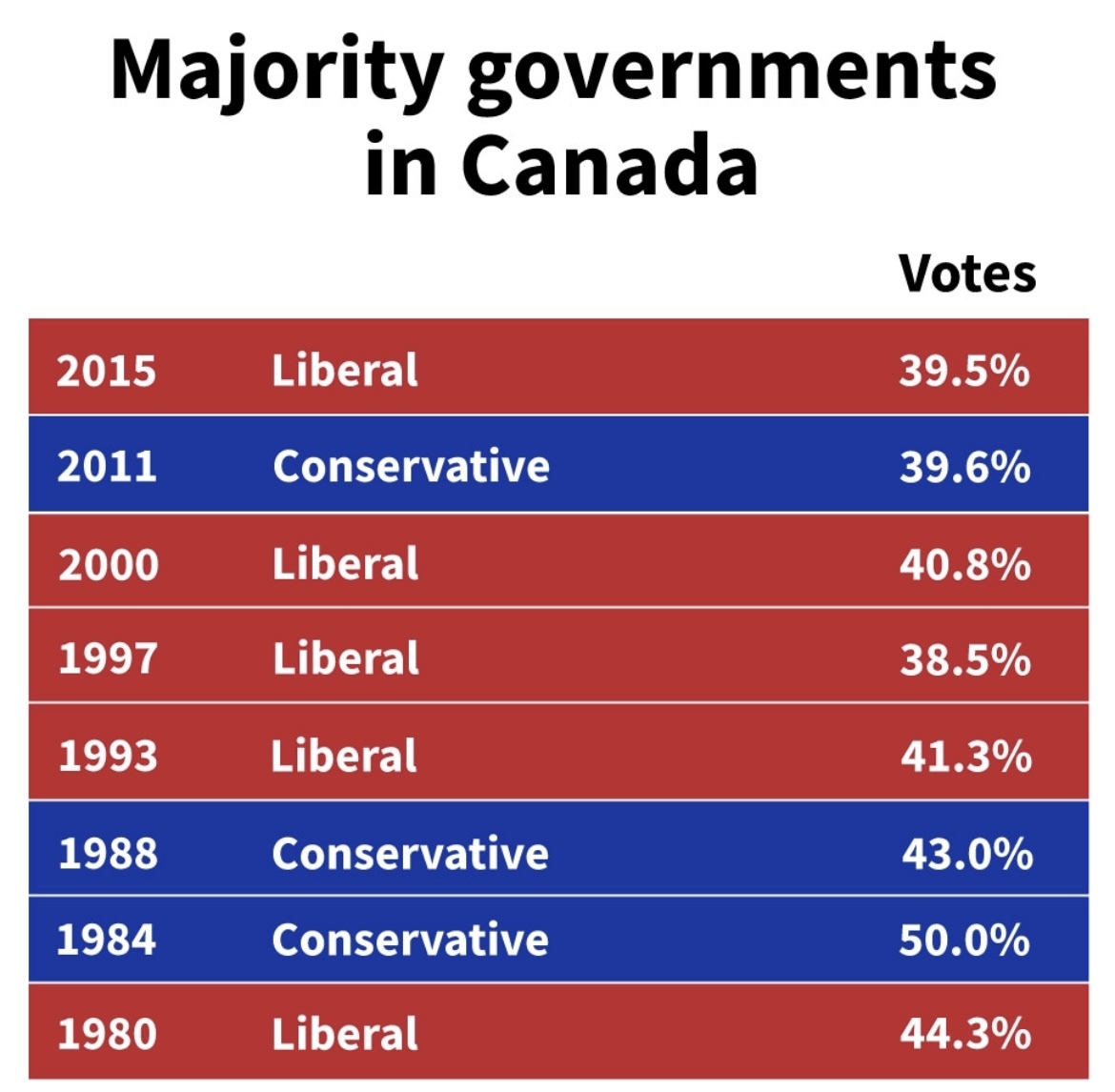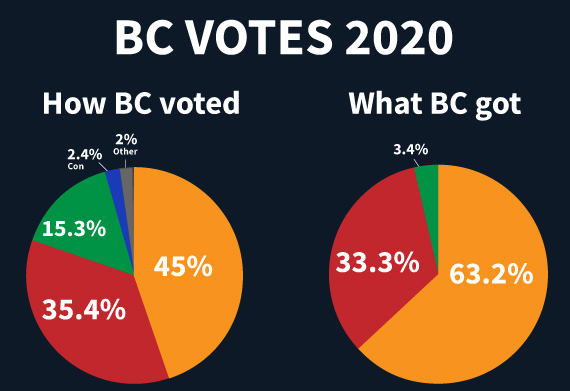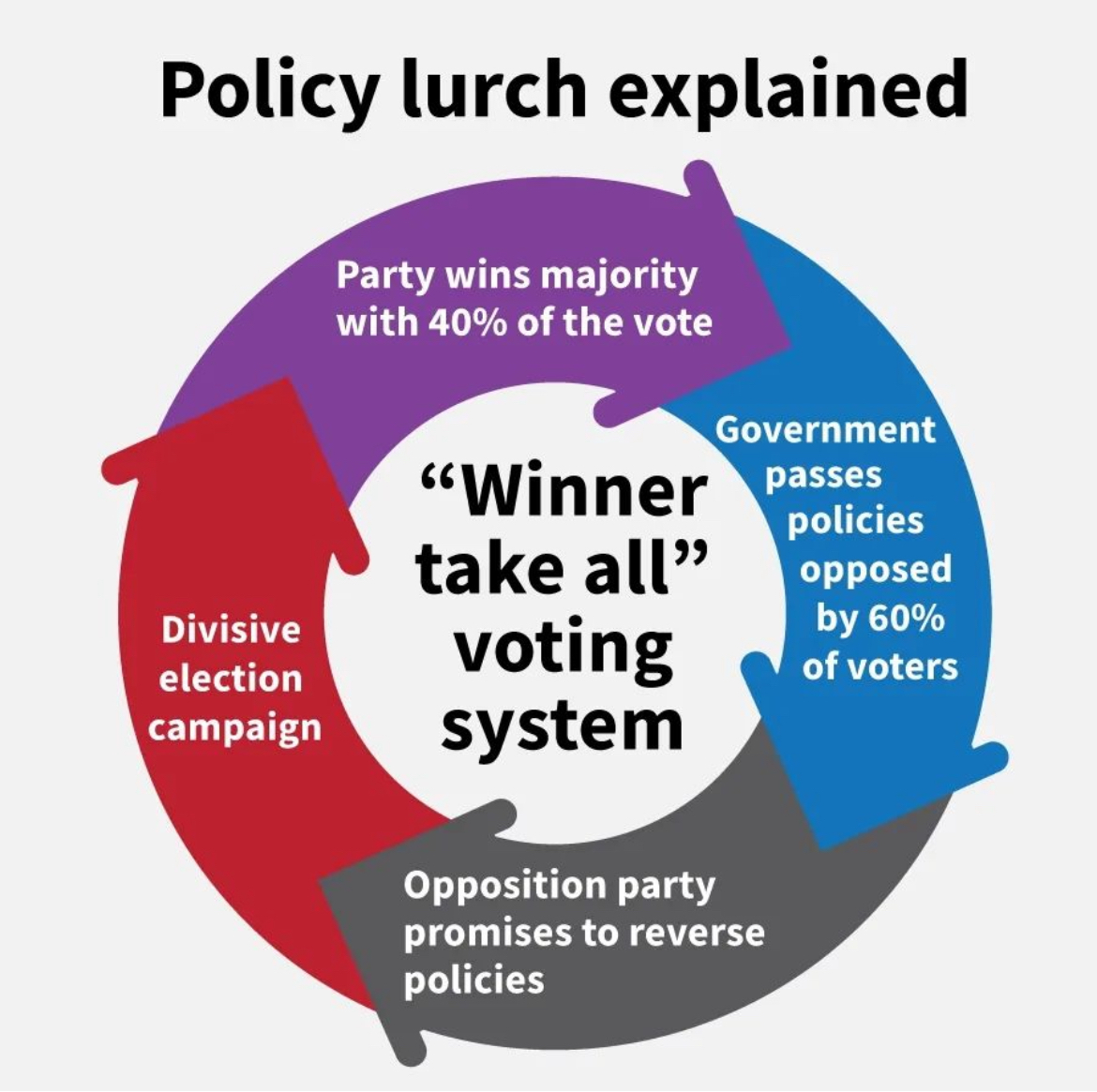Only 48.2% of New Brunswick voters supported the New Brunswick Liberals, yet the voting system has handed Susan Holt’s Liberals 63.3% of the seats and 100% of the power.
The election results were a misrepresentation of what voters said with their ballots:
- The Liberals got 63.3% of the seats with 48.2% of the vote.
- The Progressive Conservatives got 32.7% of the seats with 35.0% of the vote.
- The Greens got only 4.1% of the seats with 13.8% of the votes, electing only 2 MLAs to represent their 51,523 voters.
- About 44.9% of voters – 168,429 – cast wasted votes that elected no-one.
With proportional representation, where the seats in the New Brunswick legislature matched the popular vote, no single party would have had all the power and parties would have had to work together in the legislature.
First-past-the-post makes New Brunswick appear more divided along linguistic lines than it actually is. The 16 PC seats are all in the English-speaking ridings, so the Liberal victory is in the francophone ridings plus six in Saint John and three in Fredericton. With proportional representation, all three parties will have elected MLAs in all areas of the province.
“Once again, our voting system has distorted the will of the people,” said Vivian Unger, from Fair Vote New Brunswick. This time, it gave the Liberals a majority with 48.2% of the vote. I congratulate the Liberals on their win, but I’d also like to remind them of that time in 2018 that they got the most votes but lost the election. This time, they were running against a very unpopular Premier, and that helped them out. That’s not something they can count on in the future. I hope this win will not prevent them from holding that citizens’ assembly on electoral reform, ASAP. Their members voted for it.”
The New Brunswick Greens put proportional representation in their election platform. For the sake of all New Brunswick voters, it’s time for the New Brunswick Liberals to put proportional representation on their agenda.
Fairvote Canada
What is This Group is About?/De Quoi Parle ce Groupe?
The unofficial Lemmy movement to bring proportional representation to all levels of government in Canada.
Voters deserve more choice and accountability from all politicians.
Le mouvement non officiel de Lemmy visant à amener la représentation proportionnelle à tous les niveaux de gouvernement au Canada.
Les électeurs méritent davantage de choix et de responsabilité de la part de tous les politiciens.
- What is First-Past-The-Post (FPP)?
- What is Proportional Representation (PR)?
- What is a Citizens’ Assembly?
- Why referendums aren't necessary
Related Communities/Communautés Associées
Resources/Ressources
Official Organizations/Organisations Officielles
We're looking for more moderators, especially those who are of French and indigenous identities.
Nous recherchons davantage de modérateurs, notamment ceux qui sont d'identité française et autochtone.
